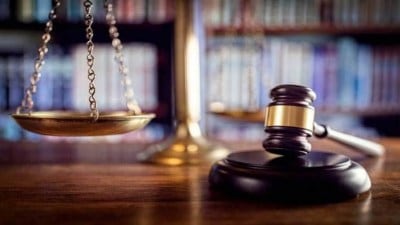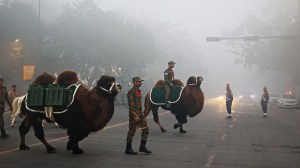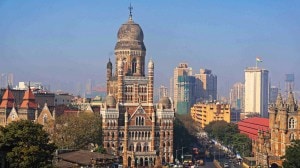Almost Normal
Maybe it was the hucksters selling arak, a strong licorice-flavoured alcohol, on the sidewalk, or entrepreneurs waving hand-held satellite p...

Maybe it was the hucksters selling arak, a strong licorice-flavoured alcohol, on the sidewalk, or entrepreneurs waving hand-held satellite phones to allow Iraqis to contact relatives abroad at 8 a minute, but this city seemed to turn a corner toward peace and normalcy.
US Marines, who bulled their way into the city on April 9 and sent the government of President Saddam Hussein scurrying, were on their way out. Also almost gone were the looters, their weeklong rampage of plunder finally quelled by a combination of disgust, vigilante justice and US military might. Traffic jams reappeared, restaurants and stores reopened, and Iraqi police were on the job.
For Iraqis, Saturday is the effective first day of the week, following prayer day on Friday, and after the trauma of a war that started one month ago, there was an almost palpable need for people to pick up the strands of their lives and start over.
Their world has been changed. The city still bears the scars of bombings. Families have been scarred too, still mourning civilians killed or maimed as a result of the brief but bitter fighting.
On the positive side, people were now free to demonstrate and protest, as did several hundred who gathered for the fifth or sixth consecutive day on Firdos Square 8212; where the massive statue of Saddam was pulled down 8212; to demand an early departure of US forces. Some linked hands and others held up banners saying 8216;8216;No to Occupation8217;8217; as they faced a pair of US tanks and a platoon of gun-toting American soldiers guarding the perimeter set up at the Palestine Hotel.
But unlike what would have been the case a few weeks ago, there was no need for the demonstrators to fear that the men with guns would fire, or that secret agents were noting their names for execution or imprisonment later.
But most of the changes were less dramatic: Women hurried across the streets, shopping bags in hand, carrying vegetables and fruits bought from the sellers who had begun to set up their wares again. Young men loitered by the occasional kebab shop that had lighted its charcoal, and money exchange shops were doing a brisk business. The day before, imams in the city8217;s many mosques had urged worshippers to return to their jobs.
For the first time in weeks, both the traffic police in their blue trousers and the green-uniformed Interior Ministry police were visible in Baghdad.
And at some of the ministries that were not destroyed, roughly two-thirds of the workers returned to their jobs, said Abu Kamal, a clerk in the Ministry of Transportation.
In the sprawling Saddam City district, now called Sadr City in honour of a slain Shiite cleric, business of another sort was taking place. Young men who had acquired rifles and guns looted from police stations and army bases in recent weeks were offering them for sale. Clients were given the chance to fire off a few rounds into the air to test them, and many of them did. An odd assortment of booty 8212; lighting fixtures obviously ripped from government buildings, freezer compressors and a bottle of Bell8217;s Scotch Whiskey 8212; were being hawked.
The changeover from Marine to Army control over downtown Baghdad and eastern districts of the city has been going on slowly for several days, necessitated by the Marines8217; lack of civil affairs troops needed for the vital task of restoring order and fixing Baghdad8217;s still-crippled electrical and water systems.
As popular frustration with the lack of basic services grew among ordinary Iraqis, the US official named interim administrator of the country, retired Gen. Jay Garner, was due to arrive in Baghdad on Sunday with his team of nation-building experts, to begin the task of stabilising Iraq and reconstituting it as a sovereign, democratic nation.
In addition to the seizure of Azzawi, a former deputy prime minister who was among the 55 individuals on America8217;s most-wanted list, American troops took custody of one of Saddam8217;s top chemical weapons experts, Hussayn Abdullaj Ani, who turned himself in voluntarily. LATWP
- 01
- 02
- 03
- 04
- 05































